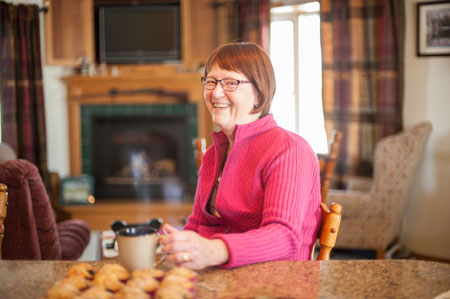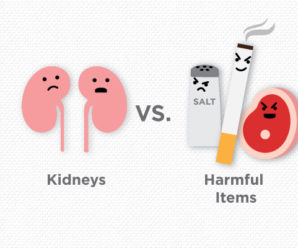
You may as well smile. For it’s better to focus on the positive than the negative,” said Nancy Marcott, of Dorchester, Wisconsin.
That’s good advice from someone who knows. Marcott is an experienced cancer survivor.
At age 60, she recalls her time as a young mother with breast cancer and as a young daughter when her mother died after living with the disease for more than 25 years.
“I was 34 when I was diagnosed with breast cancer and had a 5-year-old daughter and 9-year-old son,” Marcott said. “I had to learn how to deal with the fear and focus on what I could do.”
Marcott’s fears were exacerbated by her family history. Her mother was diagnosed with cancer at the time Marcott was born. She had one leg amputated, but the disease later returned as breast cancer and took her life at age 56.
“I recalled how ill my mom was and the terrible side effects she experienced from radiation treatments,” Marcott said. “I panicked that my experience would be the same. My doctors were calming and explained how cancer treatment technology today is much improved. I had a mastectomy and radiation therapy and was healthy and fine.”
But Marcott’s first cancer experience happened before medical testing was available that could provide tumor markers to indicate the potential for recurrence or drugs such as tamoxifen that help prevent cancer’s return.
In 1999, her cancer came back in her ribs, skull and spine
“Since having breast cancer I had gotten remarried, finished my master’s degree, raised my children and went from being a school teacher to principal,” Marcott said. “I’m no longer working full-time but have managed to set my own pace and limits and stay involved in education by consulting on curriculum projects. I want to stay as active as I can and focused on the good things and blessings.”
Marcott has been on different regimes of chemotherapy for almost seven years.
“Nancy’s had fatigue but not a lot of pain or nausea, which are common side effects,” said her physician, Dr. Richard Mercier, an oncologist/hematologist at Marshfield Clinic Health System. “For her, what’s amazing is that we continue to have new treatments becoming available and can find more options for her care. Sometimes new drugs will help make drugs we previously tried effective again.”
There may be no definite answers, but there’s always hope, Marcott said.
You need to build a support system around you and remember that it’s hard for your family and friends, too,” she said. “As a teacher, I always had a toolbox from which to pull ideas. When something quits working you try something else and stay focused on the positive. Enjoy every day and take nothing for granted.”







Leave a Reply